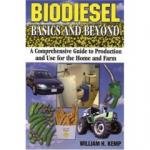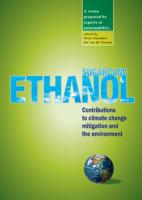Descrição
Book Description
Using vegetable oils as a fuel for home heating and transportation is a hundred years old: Rudolf Diesels original engine was operated on plant oils due to the lack of fossil fuels. Later, plant and animal oils were converted into a petrodiesel-compatible fuel known as biodiesel: a clean, low-carbon fuel.
In the early 1980s, home brewers discovered they could transform waste restaurant fryer oils into crude biodiesel and use it in automobiles at 100% concentrations at one quarter the cost of petrodiesel. Yet automotive and engine manufacturers insist that late-model vehicles may be damaged when run on high concentrations of biodiesel and may not honor engine warranties where biodiesel fuel has been used.
Biodiesel Basics and Beyond aims to separate fact from fiction and to educate potential home, farm and cooperative manufacturers on the economic production of quality biodiesel from both waste and virgin oil feedstock. The book includes:
Detailed processes and lists of equipment required to produce biodiesel that meets North American standards
How farmers can use excess oilseed as a feedstock for biodiesel production
The use of the co-byproduct glycerin in making soap
A guide to numerous reference materials and a list of supplier data.




